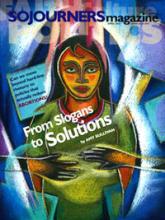Once each year, the quiet and spectacularly beautiful Swiss mountain village of Davos is taken over by top business and political leaders from around the globe for the World Economic Forum. The motto of the event is “Committed to Improving the State of the World.” This year’s meeting saw 1,200 of the world’s leaders of governments, corporations, and civil society gathered, carefully protected by 8,000 security personnel. The topics were wide-ranging, the panelists among the most famous people in the world, the discussions often quite provocative.
The kind of globalization that drives for unbridled economic growth and unlimited corporate profits, while imposing financial conditionality on poor countries—often to their detriment—has been a persistent problem for real development in the global South, and an offense to the requirements of justice. The many sessions I attended included a serious critique of those practices and structural problems, especially in regard to the crises of global health care and extreme poverty. That was a sign of hope.
Since Sept. 11, a few religious leaders have been invited to join the conversation, creating interfaith dialogue to breach dangerous divides and add broader moral and ethical perspectives. During a “West-Islamic World Dialogue” meeting, participants said they hoped to “understand the differences and affirm the commonalities.” This year, 24 religious leaders came from around the world, including six of us from the United States, to talk with each other and with the business and political leaders. The group was convened each day by Dr. George Carey, former Archbishop of Canterbury, and then dispersed to listen and present to the many interactive sessions.
Read the Full Article
